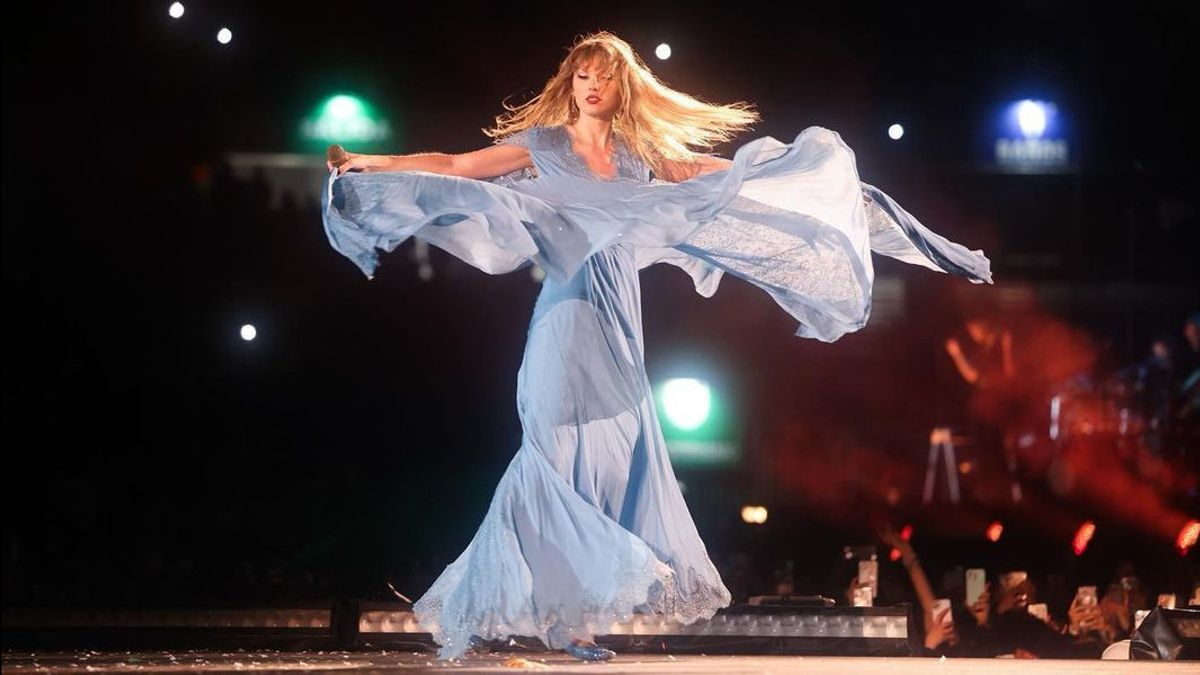JAKARTA - Taylor Swift's sexual orientation speculation was criticized by her pop star's counterpart. He said the opinion was "invasive, untrue, and inappropriate".
On January 4, the New York Times published an opinion, stating that there was an "strangeness" implied in Miss Swift's work.
Among other references made by Swift in her music, the article claims Swift secretly made an astonishing confession in 2019 via Instagram posts.
The singer of the song All To Well posted a photo of a friendly bracelet reflecting a rainbow with the color of the flag of bisexual pride and the word 'pride' in the bead.
Now, a source close to Swift spoke to CNN to denounce the opinion.
On Saturday, January 6, he told CNN: Due to its great success, there is currently a Taylor-shaped community ethics hole.
These artists should not be written about Shawn Mendes or any male artist whose sexuality is questioned by fans.
"There seems to be no limit that some journalists will not cross when writing about Taylor, regardless of how invasive, untrue, and inappropriate it is all behind the protective veil of an 'opinion'," he continued.
Although Swift publicly supports the LGBT+ community, she told Vogue Magazine in 2019 that she was not part of the community.
"The right is basically stripped of everyone who is not a straight white cisgender man," Swift said. "Until now, I didn't realize that I could advocate for a community that wasn't part of me."
Swift also appears to hint at earlier speculation about her sexuality in the prologue she wrote for '1989 (Taylor's Version)'. Responding to the words slut shaming' and jokes about my amount of boyfriends, Swift said she decided to just focus on herself, music, my growth, and my women's friendship
SEE ALSO:
"If I just hang out with my female friends, people won't be able to create sensations or do sexual things about it - don't I? I'll then learn that people can and people will.."
Meanwhile, the author of The Times' article and opinion editor, Anna Marks, has not responded to the negative reaction publicly. However, in his opinion, he first acknowledged criticism of the article, by writing: I know that discussing the potential peculiarities of a star before formal identity statements are felt, for some people, too obscene and triggered by gossip deserves to be discussed.
I share a lot of these objections, he continued. But stories that dominate our collective imagination form what our culture allows for it to be said and done by its artists and audiences. Whenever an artist gives a signal that strangeness and transmission is not heard, the signal is dead. Recognizing the possibility of strangeness while realizing the difference between possibility and certainty keeps the signal alive.
The English, Chinese, Japanese, Arabic, and French versions are automatically generated by the AI. So there may still be inaccuracies in translating, please always see Indonesian as our main language. (system supported by DigitalSiber.id)
















